Economic

SL foreign reserves may fall to unprecedented lows next year, global analysts warn!
Sri Lanka‘s foreign reserves are now under a serious threat of depleting to very low levels with signs of downfall imminent in Foreign Direct Investments (FDI) and foreign funding during the new year in the short and long run, global economic analysts predicted. The ratings of the International Monetary Fund (IMF), World Bank, Moody's, Fitch, Citi, and the latest downgrade by S&P Global cannot be considered as wrong forecasts. They warned that Sri Lanka’s debt burden is reaching an unsustainable level, and that the country’s economy is in a precarious state to recover from the COVID-19 triggered recession.
If the government fails to obtain IMF relief and private sector credit, gross reserves should fall to about USD 3.7 billion by end of 2021 or USD 2.3 billion on a usable basis, Citigroup Global Markets Inc financial analysis report recently revealed.
As of October 2020, the global agency has estimated gross FX reserves of USD 5.86 billion are enough to cover about 55% of total external financing requirements (current account deficit amortizations of medium to long term debt + short-term debt).
If official loans are rolled over and China lends an additional USD 800mn to Sri Lanka, reserves will fall to USD 3.7 billion at the end of 2021.
But assuming new official and China commercial lending would be delayed or fall short amid debt sustainability concerns, FX reserves could fall an average of about USD 365 million per month, the report disclosed.
This means reserves can drop sharply to about USD 3 billion by July without extraordinary new financing by China and larger scale FDI, economic analysts said.
Citigroup Global Markets Inc expressed the belief that Sri Lanka's debt restructuring programme may not happen until 2022.
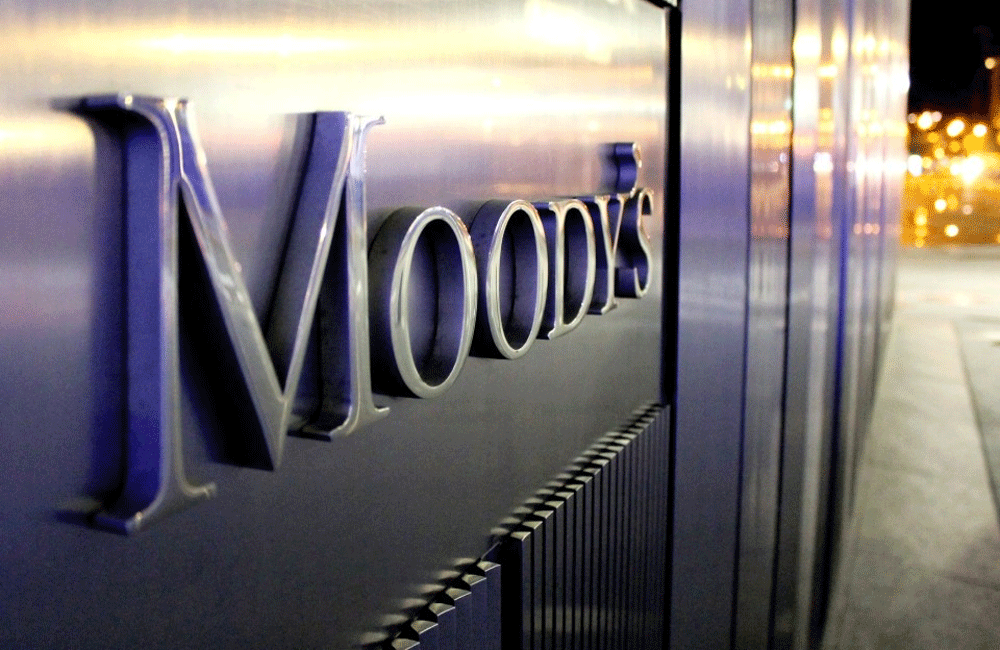
Moody's on 2021 Budget: Massive borrowings to resurrect collapsing economy bound to fail
International rating agency Moody’s has claimed that the attempt made in Sri Lanka’s budget 2021 to resurrect its collapsing economy by massive borrowings targeting expedited economic growth cannot be a successful one.
Budget deficits are ranging from 7.9% of GDP in 2020 and 9% of GDP in 2021 respectively.
From attracting investments to managing the deficit, there is possibly even more emphasis on oversight and achieving targets in this Budget than its previous avatars.
This is mostly because there is much more riding on this Budget given Sri Lanka’s growth challenges, COVID-19, debt sustainability and reputation of routinely missing targets.
In its latest report, Moody’s said they were particularly concerned that a 28% increase in revenue was too ambitious and growth was unlikely to rebound by the 5.5% outlined in the Budget given persistently low domestic and international demand.
The dilemma between delivering on ambitious fiscal consolidation targets and supporting economic recovery will continue to weigh on Sri Lanka’s credit profile ahead of significant and recurring external debt-servicing requirements through 2025 with Budget deficits to remain 8% or above beyond 2023.
The government has to find USD 4.1 billion each annually to service foreign debts and USD 21.6 billion till the year 2025 at a time the country has lost a part of its foreign remittances amounting to USD 7 billion and another USD 4 billion from the drop in exports around USD 5 billion loss from the collapse of tourism industry.
The government’s drive to support and encourage domestic production to reach self-sufficiency in identified goods is likely to play a crucial role in Sri Lanka’s economic transformation.
However, the maintenance of quality standards of domestically-produced goods and ensuring availability at a reasonable price are vital to derive intended benefits in the medium to long term.
This is imperative to boosting Sri Lanka’s competitiveness because import substitution will not be successful unless products move up the value chain and can also expand the country’s limited basket of exports.
Adequate investment in innovation and research and development (R&D), and the promotion of export-oriented Foreign Direct Investment (FDI) are needed to improve efficiency and enhance productivity, particularly in the SME sector.
If Sri Lanka is to achieve the high growth predicted in 2021, it has to have improved access to international markets, so trade negotiations with existing and new partner economies must continue.
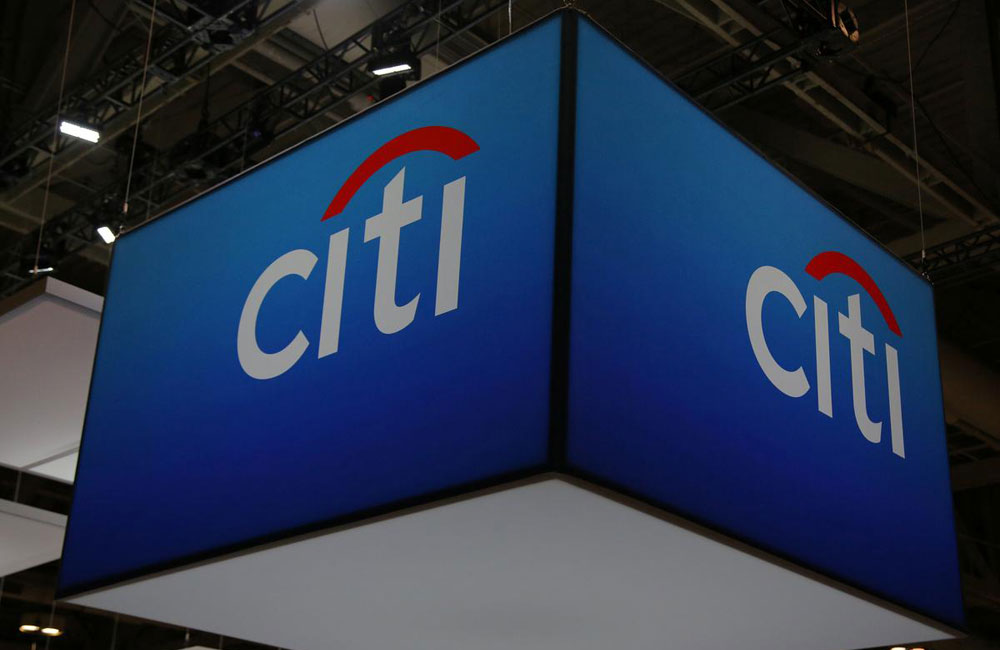
Government's lack of debt restructuring triggers economic hell
Sri Lanka government’s lack of debt restructuring strategy and the uncertainties around the Central Bank’s debt servicing mechanism is set to drag the country into further economic abyss, a Citigroup Global Markets Inc financial analysis report revealed. Sri Lanka's debt is on an unsustainable path and the government appears to be in denial running around the mulberry bush while officials continue to mention their willingness to pay, the global financial analyst said.
They remain cautious on Sri Lanka bonds as the road to restructuring is long without recommending getting involved in Sri Lanka bonds given the government's lack of a debt repayment strategy and the uncertainties around the government's willingness to engage with the International MOnetary Fund (IMF).
They noted that they cannot see a credible strategy for achieving debt sustainability and (external) repayment capacity beyond talking up their growth prospects and expecting this to attract foreign investment and other portfolio equity inflows.
The ability of financial repression to contain domestic borrowing costs is limited by rising debt ratios, still expected to grow amid a pro-growth 2021 Budget.
The report noted that net Foreign Direct Investment will finance about 40% of the current account deficit in 2021, and the rest will not be wholly covered by official multilateral and bilateral lending, let alone commercial funding, in the absence of an IMF policy reform backstop.
"Sri Lanka's government will be compelled to engage with the IMF to execute the restructuring. We expect a coupon haircut of around 52% to stabilize the debt at current levels, with maturity extensions 3-5 years across the curve," the report said.
Citigroup Global Markets Inc also assessed a scenario in which Sri Lanka does not engage with the IMF due to policy differences with the Fund.
In this case, a successful restructuring would be difficult and exit yields would be significantly higher than the 10-11 %, one would see in other countries with an IMF programme.
The exposure to the foreign currency carries about half of the total debt stock which is about 47% in 2020 exacerbating foreign exchange and rollover risk.
Of the total foreign currency debt stock of USD 35.3 billion, International Sovereign Bonds (ISB) dominate which accounts for almost 43% or USD 15 billion.
However, the debt to GDP ratio is projected to reduce below 75.5% by 2025 with the expected lower fiscal deficit aligned with higher economic growth, official sources said.
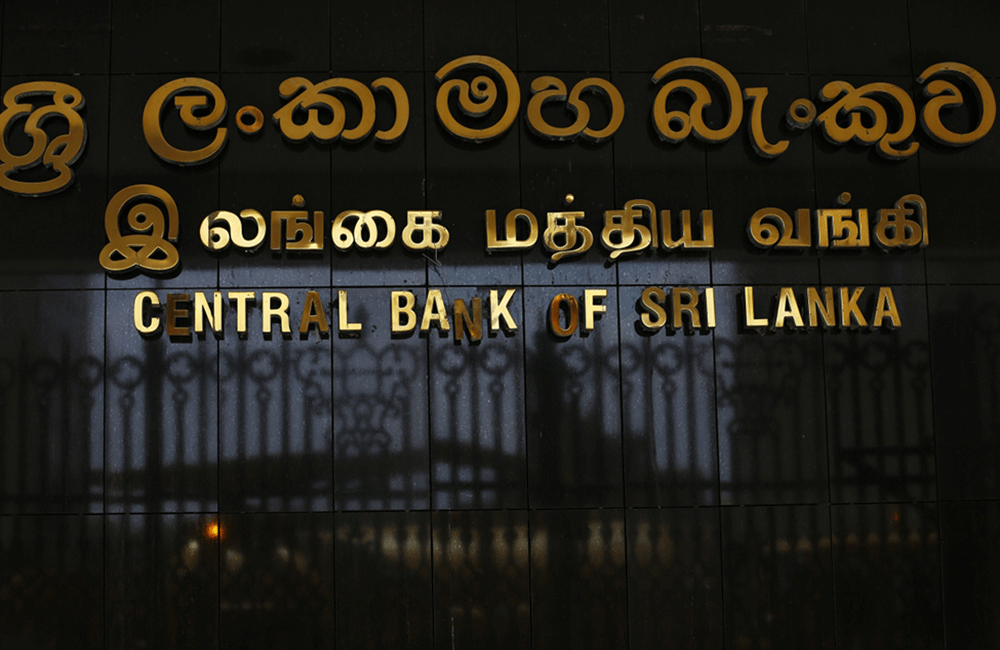
Central Bank extends deadline for COVID-19 debt relief moratorium from NBFIs
The Central Bank has extended the deadline for debt moratorium from Non-Bank Financial institutions (NBFIs) for business and individuals impacted by COVID-19 till 10 December. The earlier deadline for submission of requests was 25 November.
The Central Bank said NBFIs are required to finalise the decision and communicate the decision (grant/deny) in writing to the applicant within 45 days of submitting the request.
As a new requirement, the Central Bank has also stated that all chief executive officers and compliance officers are responsible to lay down the procedure to be followed in granting the relief measures and instruct the branch level staff accordingly.
In early November, the Central Bank announced the extension of debt moratorium on both capital and interest to COVID-19-impacted clients of NBFIs by a further six months from 1 October.
Eligible credit facilities include term loans, leasing facilities, pawning, and credit facilities similar to overdrafts, trade finance or any other credit facilities, which were in the performing category as at 31 March or at a later date.
Eligible borrowers qualifying for relief include businesses, proprietors and individuals engaged in tourism; direct and indirect export-related businesses – including apparel, IT, tea, spices, plantation, logistic suppliers and any other sectors impacted by work disruption and local and overseas lockdowns owing to the COVID-19 pandemic.
SMEs with an annual turnover below LKR 1 billion and individuals engaged in business sectors, such as manufacturing, non-financial services, agriculture, construction, trading as well as self-employment businesses and individuals who have lost their jobs or income due to COVID-19.
A similar extension of debt moratorium is available for customers of licensed commercial banks with the deadline for submission of requests expiring today (30).
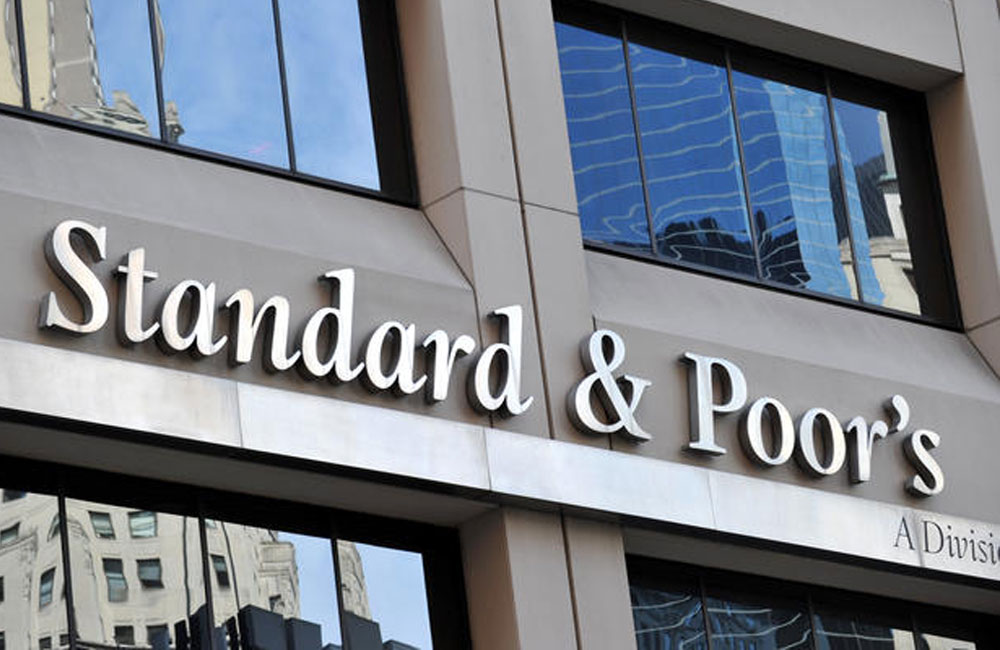
Debt servicing risks prompt S&P to downgrade Sri Lanka
Rating agency S&P slashed Sri Lanka’s credit rating to “CCC+/C” on Friday, citing concerns that risks to the island nation’s debt servicing capacity have risen as the COVID-19 pandemic squeezes the government’s ability to generate earnings, foreign news agency report revealed. S&P’s downgrade from “B-” follows similar moves by Fitch and Moody’s in recent months and underlines the challenges facing the country as it strives to recover from the pandemic-induced hit to its tourism and garment export industries, its main sources of foreign exchange reserves.
Sri Lanka’s fiscal deficit is likely to remain elevated in the wake of the government’s recent expansionary budget measures, S&P said.
Last month, Finance Minister Mahinda Rajapaksa presented an ambitious budget that aimed to more than halve the fiscal deficit over the medium term.
The measures will likely worsen the government’s heavy indebtedness and add to repayment burden, S&P said.
Sri Lanka’s external profile remained weak, given that the high share of dollar-denominated debt exposed the government to shifts in risk sentiment, it added.
The country has around USD 4 billion of debt repayments due annually until 2025. Its foreign exchange reserves stand at just under USD 6 billion, leaving it little room to spare.
S&P expects the fiscal deficit to remain elevated at 10.2% of gross domestic product (GDP) in 2021 and narrow gradually to 8.4% in 2023, while net general government debt will exceed 100% of GDP in 2021 and remain high over the next five years.
Sri Lanka’s own targets see a reduction in debt-to-GDP to 75.5% in 2025, from an estimated 95.1% in 2020.
Sri Lanka’s bond prices fell in the wake of the downgrade, with the July 2021 and July 2026 issues losing around 1 cent, with the latter now at around 57.8 cents on the dollar, Tradeweb data showed.
The bonds fell by more than 40% in the first half of the year, before recovering some ground.
“Sri Lanka does scream as relatively weak in the EM world,” said Trieu Pham, emerging market sovereign debt strategist at ING.
“FX reserves are pretty low for an EM economy of that size and they do face a lot of bond redemption over the next few years. If bond prices are to recover it must be driven by fiscal restoration of credibility and that will only come with an IMF programme,” he added.
Related News: Fitch downgrades Sri Lanka to 'CCC' amid heightened debt sustainability risks
Fitch downgrades Sri Lanka to 'CCC' amid heightened debt sustainability risks
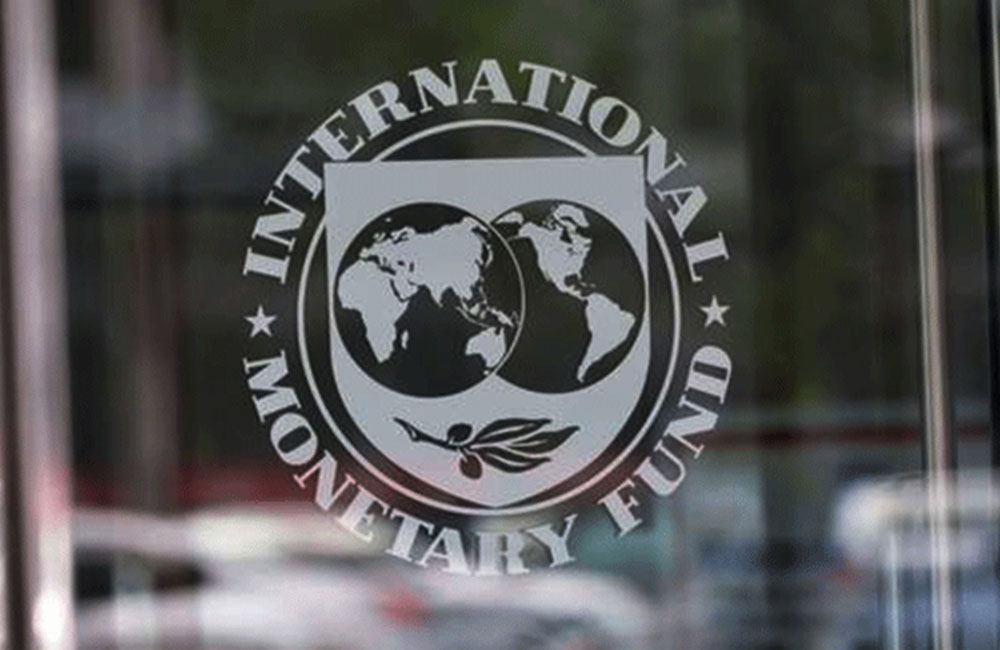
IMF financing to be delayed due to Sri Lanka’s debt issues
According to the International Monetary Fund (IMF), Sri Lanka’s economic challenges and mountain of public debt are significantly delaying the review of the country’s request from the IMF for emergency financing that was made over seven months ago, The Sunday Morning reported.
“Assessing the relevant conditions for the Rapid Financing Instrument (RFI) has taken longer than for other countries, due to Sri Lanka’s daunting economic challenges, high public debt, and Parliamentary elections in August. The RFI request remains in place,” Acting IMF Mission Chief for Sri Lanka Masahiro Nozaki said last Wednesday (25), responding to a query.
In early-April, Sri Lanka requested for emergency financial support under the RFI of the IMF. In mid-April, Nozaki confirmed to The Sunday Morning Business that this request was being reviewed.
Speaking further last week, Nozaki added that the IMF has sought but not reached an understanding yet on how to fulfil the key requirements for the RFI, which include policies to continue ensuring debt sustainability. He added that the Sri Lankan authorities have a range of options to ensure debt sustainability and the IMF stands ready to discuss all options with the authorities.
Meanwhile, State Minister of Money and Capital Market and State Enterprise Reforms Ajith Nivard Cabraal, in an interview with The Sunday Morning two weeks ago, stated that the country’s debt management strategy is “wide” and “far reaching” and added that the present Government is aware of the exact steps that need to be taken to steer the Sri Lankan economy back to health.
“We have formed a view that any IMF funding support will not be necessary for Sri Lanka at this stage and that is why we have not sought assistance from that institution. I could further elaborate that as a shareholder of the IMF, we can of course at any time reach out to them if we need any specialised technical support or advice, and we may still do that if we believe we can benefit from some specific advice or expertise,” Cabraal noted.
Speaking further, Cabraal stated that IMF loans are often viewed as the only way forward to “discipline” a country and are also viewed as programmes that provide “credibility” to a country’s own plans, while more countries have suffered from even greater structural weaknesses after IMF programmes.
“This is also a factor that needs to be taken cognisance of by country authorities. After all, it is a country’s Government that will be responsible to its stakeholders for success or failure in the final analysis, and not the IMF or the World Bank,” Cabraal added.
Following the global outbreak of the pandemic in the first quarter of this year, the IMF received about 102 requests from countries, seeking RFI support. As of mid-September, about 76 out of these 102 requests had been approved, according to the IMF. This means that Sri Lanka was among approximately 20 or 30 countries that were not granted RFI support.
The 76 approved countries include a number of Asia Pacific countries such as Bangladesh, Mongolia, Myanmar, and Nepal. On 29 May, Bangladesh was approved USD 488 million under the RFI while on 26 June, Myanmar was approved USD 237.7 million. On 3 June, Mongolia was approved USD 99 million under the RFI. The total of the approved funds under this facility was USD 31 billion by end-September.
When we contacted Treasury and Ministry of Finance Secretary S.R. Attygalle last month to know the reasons for the delay, he said that the IMF was waiting till the 2021 Budget was presented to Parliament, and it was presented in Parliament on 17 November. Our attempts to contact Attygalle last week for an update of his comment proved futile.
However, when asked earlier how urgently Sri Lanka requires RFI support and if Sri Lanka could afford to be excluded from this financing, he said that it was not desperately needed by the country.
Meanwhile, in mid-August, Central Bank of Sri Lanka (CBSL) Governor Prof. W.D. Lakshman told The Sunday Morning Business that Sri Lanka will obtain emergency financial support under the RFI only if the support would be provided with no conditionality.
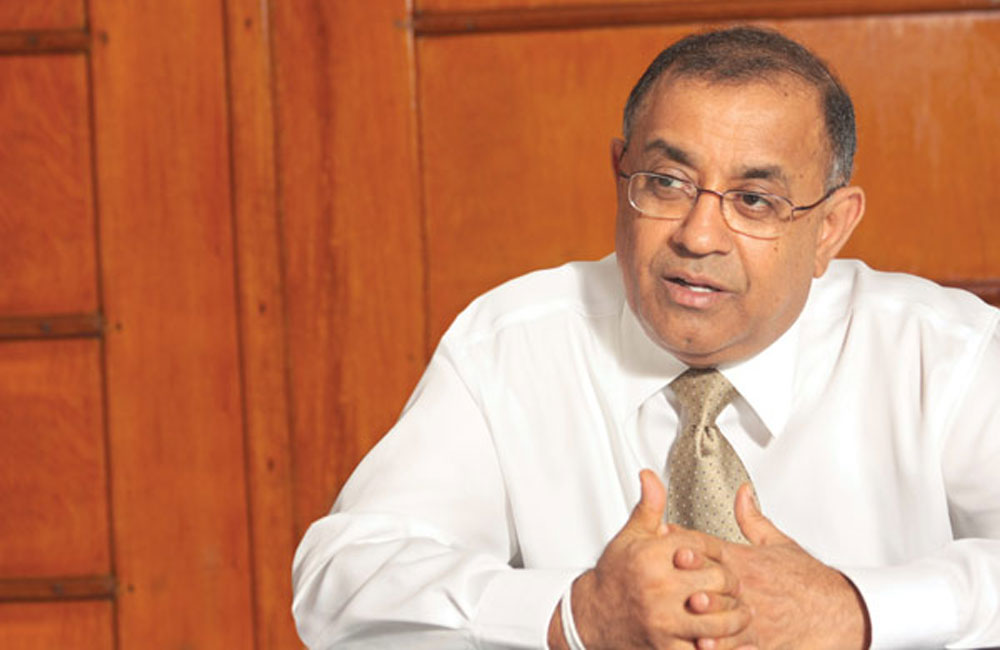
Government has not imposed a total ban on imports: P.B.
The Government has not banned imports, only some 'big-ticket items' such as motor vehicles are stopped from being imported, Secretary to the President Dr. P. B. Jayasundera said.
If the choice is between the importation of motor vehicles by spending USD 1500 million per year or to honour your debt obligations, he said that he would advise the government to first honour its debt obligations. The government has not stopped imports of raw materials. The apparel industry which collapsed by March because of lockdown measures in 2020 has bounced back and exports are now back in the same level as before the Covid pandemic.
The country imports textiles, we import various other requirements and these things are happening. Trade is taking place, except for some big-ticket items like motor vehicle imports or gold imports. So, the country has not stopped imports.Trade is not an instrument to use as a leverage to gain something. It is to develop a bilateral relationship," he added.
He said that he held a discussion with the German Ambassador and that he did not bring up any trade restrictions.
They are also turning to countries like us. Because our country has so many positives that they can speak of, and we have trade with Germany, he said, adding that the government is unable to permit the importation of motor vehicles but, medical drugs, pharmaceutical equipment, advanced technology, tourism and spare parts and things like that which can come in from Germany are allowed.
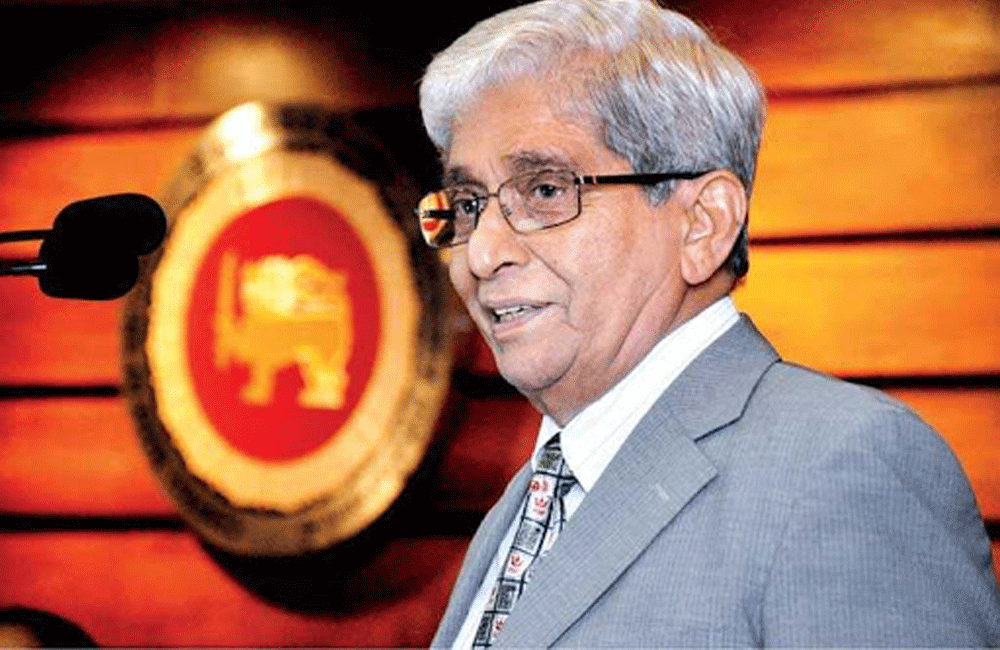
CBSL Governor brands EU response on import control as an “overreaction”
This statement is unbecoming for a head of the country’s monetary authority as the Central Bank has no mandate to comment on diplomatic and political matters and statements, a senior economic expert pointed out.
Such issues of foreign diplomatic missions should be addressed and redressed by the country’s Foreign Ministry and therefore its responsibility will be undermined by local foreign embassies if the Governor continues this unethical practice, he noted.
He has also earned the wrath of the International Monetary Fund (IMF) when he told a leading newspaper couple of months ago that it is essential to rethink the support provided by multilateral financial institutions to enable emerging and developing economies.
This has prompted the IMF to review its extended fund facility to Sri Lanka and the country’s request for a Rapid Credit Facility (RCF), economic experts said, adding that the Governor should refrain from poking his finger into everything.
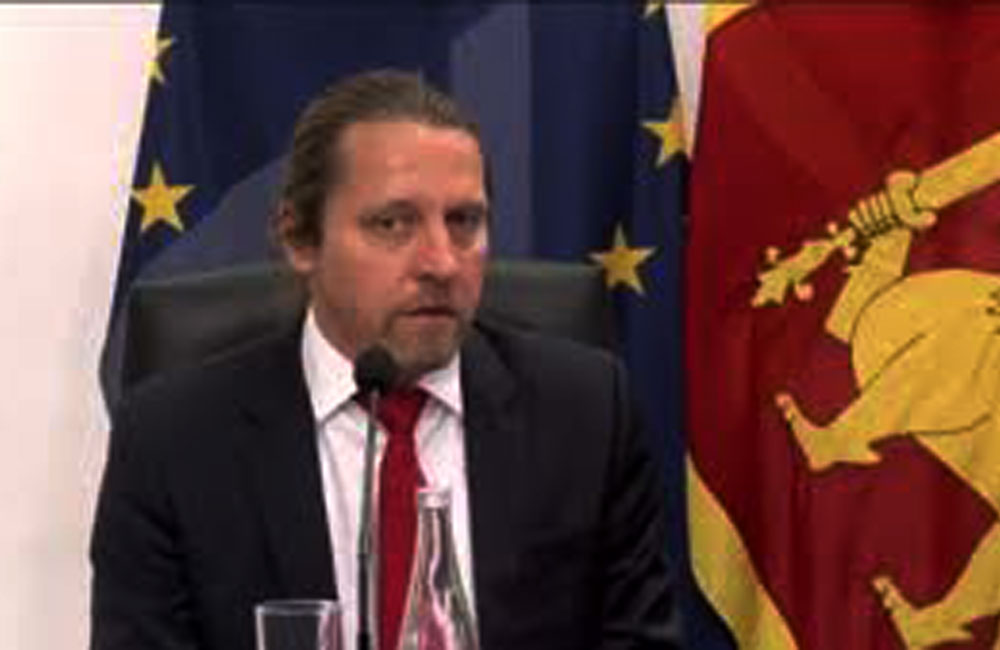
EU raises objections for the second time on rising protectionism in Sri Lanka
The European Union says it has no problem with Sri Lanka’s large trade surplus with the region, a senior diplomat said. However, the EU noted its objections for the second time against rising protectionism and import controls, while highlighting the need for global trade to be open even amidst the COVID-19 pandemic.
This was revealed by Thorsten Bargfrede, Deputy Head of Mission at the Delegation of the European Union, at a forum in Colombo recently.
He was making a strong response to Sri Lanka’s Central Bank's aging Governor W. D. Lakshman’s political statement that the EU is over-reacting to the import controls.
It was unbecoming the Governor of a Central Bank to make such political remarks going beyond his responsibility and diplomatic protocol , a senior veteran CBSL official said.
In 2019, Sri Lanka exported USD 3.5 billion of goods to the EU (not counting EU tourists to Sri Lanka) which was 28.7% of total exports, and imported USD 1.68 billion of goods which was 8.9% of the total.
Sri Lanka slapped a series of import controls in April 2020 after money printing and a so-called ‘flexible exchange rate’ put pressure on the currency and earned a credit downgrade.
“From the EU view point, that we have a negative trade balance with Sri Lanka is not an issue as such,” he said adding that “failure of trade for us doesn’t come through a surplus (for Sri Lanka).
"The EU stands, as a principle, for a rule based open trading system, and does not believe in protectionism and especially in times of the COVID-19 crisis, global trade needs to stay open, not closed down,” he said, noting that the EU had remained open for Sri Lanka, with GSP plus preferential access so far.
Sri Lanka was set to lose GSP+ access when it was categorised as a middle income country, but as per capita gross domestic products fell after money printing triggered two currency crises in close succession in 2016 and 2018, the country was downgraded to a lower middle income status again.
In November, the EU warned Sri Lanka against import controls saying trade was not a one-way street.
“The current import restrictions are having a negative impact on Sri Lankan and European businesses, and on Foreign Direct Investment. Such measures impair Sri Lanka’s efforts to become a regional hub and negatively impact Sri Lankan exports by constraining the import of raw material and machinery. We recall that a prolonged import ban is not in line with World Trade Organisation (WTO) regulations,” the EU noted.
In Sri Lanka, there is a widespread mercantilist belief that imports (or a trade deficit, or a current account deficit) causes balance of payments problems and pressure on the currency and not money printing and credit.
The last administration banned gold imports after printing money in 2018 just as the credit system was recovering from an earlier crisis. The rupee collapsed immediately after gold imports were halted.
It also controlled imports after failing to restrain the central bank, which was following discretionary policy and printed money as the credit system recovered. Vehicles are also a perennial favourite for import control.
“The European Union looks at global problems – we have COVID now – as something that needs global solutions as well,” Bargfrede said.
"We believe we need to help ourselves, we need to work together to solve these issues. We feel for the Sri Lankan and for the global economy what we need are open and rules based trade so that businesses get confidence again to invest and re-start exchanges and to bring employment and revenues,” he added.
Bargfrede said the EU along with the UK and US accounted for about two thirds of Sri Lanka’s exports in recent years.
CBSL Governor W. D. Lakshman however, has suggested that the EU is over-reacting to the import controls.
Sri Lanka’s import controls run out in January 2021 but a pick-up in private credit has taken place over the past three months and money printing is still ongoing.
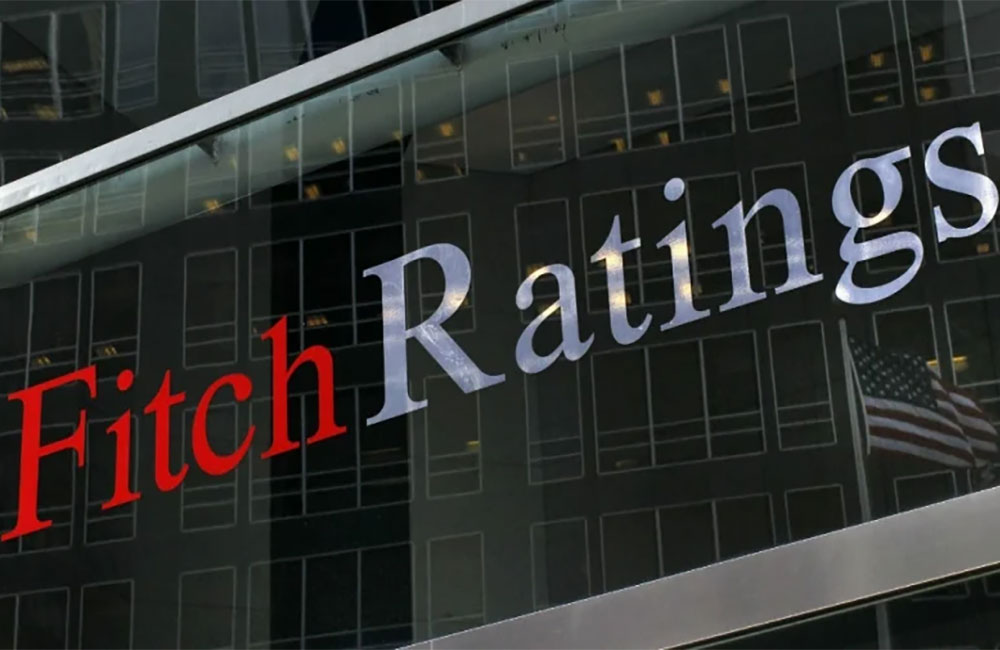
Fitch downgrades Sri Lanka to 'CCC' amid heightened debt sustainability risks
Fitch Ratings has downgraded Sri Lanka's Long-Term Foreign-Currency Issuer Default Rating (IDR) to 'CCC'.
The downgrade reflects Sri Lanka's increasingly challenging external-debt repayment position over the medium term. In particular, a sharp rise in the sovereign debt to GDP ratio associated with the coronavirus shock and narrowing financing options have heightened debt sustainability risks.
"Sri Lanka's external funding needs are substantial over the medium term, and in our view, risks to the sovereign's ability to meet its external-debt service obligations have increased. The government's external-debt obligations amount to USD 23.2 billion between 2021 and 2025 or about USD 4 billion annually, against FX reserves at end-October of just USD 5.9 billion. The sovereign's financing and debt service challenges are exacerbated by its existing financing model, which has resulted in very high general government interest to revenues ratios. The average interest to revenue ratio from 2016 to 2020 is about 50%, substantially above the 'CCC' peer median of about 11%," Fitch Ratings said.
Although the Sri Lankan government plans to meet their external-debt obligations in 2021-2025 through a combination of sources, including bilateral, multilateral and commercial financing, Fitch Ratings said that access to such external financing options will become more challenging against the backdrop of already high debt levels and an expected further weakening of government debt dynamics.
Meanwhile, Fitch believes that financing conditions for potential market issuance have tightened materially, notwithstanding the reduction in political and policy uncertainty following the completion of parliamentary elections in August 2020 and submission of the draft 2021 budget in November.
"We think there are now increasing risks to Sri Lanka's ability to meet its external-debt repayments as reflected in our forecast of a steady decline in FX reserves in 2021 and 2022. We expect Sri Lanka's external liquidity ratio, defined as liquid external assets/external liabilities, will remain low at about 63%, against a 'CCC' median of about 68% in 2021.
In the 2021 budget, the authorities have planned external borrowings of project and programme loans mostly through bilateral and multilateral sources (about USD1.8 billion), as well as foreign commercial loans (about USD1.4 billion) for budget support. The authorities do not currently anticipate a financing arrangement with the IMF," the ratings agency said. In May 2020, S&P Global Ratings downgraded its long-term foreign- and local-currency sovereign credit ratings on Sri Lanka to B- from B, citing a deterioration in the country's already weak fiscal position amid an expected economic contraction.
In September, Moody’s Investors Service downgraded Sri Lanka’s sovereign rating two notches to Caa1, from B2, citing wide budget deficits, slow reforms and weak institutions.
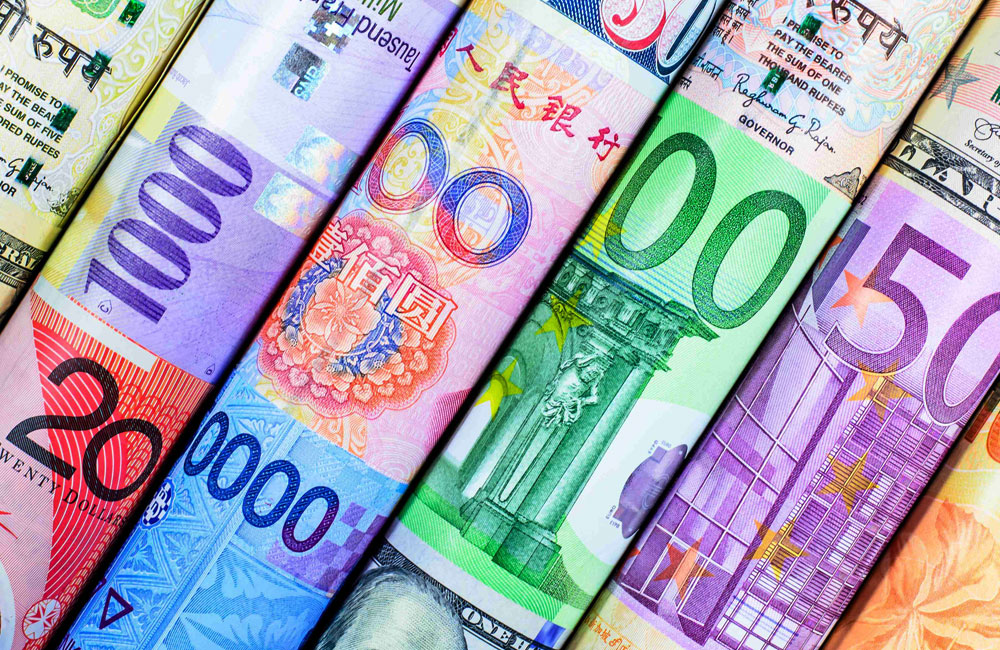
Sri Lanka to mobilise USD 742 million in foreign financing
Sri Lanka will attempt to mobilise foreign financing of USD 742.8 million by entering into 11 agreements with foreign development partners and lending agencies from January 01 to August 31, 2020, to support the public investment program, treasury sources said. This consists of USD 500 million of Foreign Currency Term Financing Facility extended by the China Development Bank for budget support purposes and USD 128.6 million extended by the World Bank to be utilised for COVID-19 Emergency Response and Health Systems Preparedness Project.
Among other foreign financing facilities, grants extended by Japan (USD 7.6 million), Germany (USD 12.5 million), the Asian Development Bank (USD 3.0 million) and the United Nations High Commissioner for Refugees (USD 0.02 million). The performance of mobilising foreign financing during the period was adversely affected by COVID-19 pandemic.
Committed Undisbursed Balance (CUB) As at August 31, 2020, the total undisbursed balance of foreign financing available from already committed loans that are to be utilized in next 3–5 years, was USD 8,737 million.
China has the majority of the balance to be disbursed followed by Asian Development Bank, Japan and the World Bank respectively.
Almost 25 percent of the CUB to be utilised in roads and bridges sector whereas 18 percent is for water supply and sanitation and 14 percent for ground transport sector.
Sri Lanka is unlikely to meet its two billion dollar foreign direct investment (FDI) target this year due to the economic impact of COVID-19, government officials said, calling on G7 and oil-rich countries to address this issue.
The Group of Seven or G7 countries as it is called, comprises seven largest advanced economies in the world namely Canada, France, Germany, Italy, Japan, the United Kingdom, and the United States.
The country has received around 370 million dollar worth of FDI this year which includes a massive 250 million dollar mixed development project by Shangri-La to build an apartment and a shopping complex in capital Colombo.
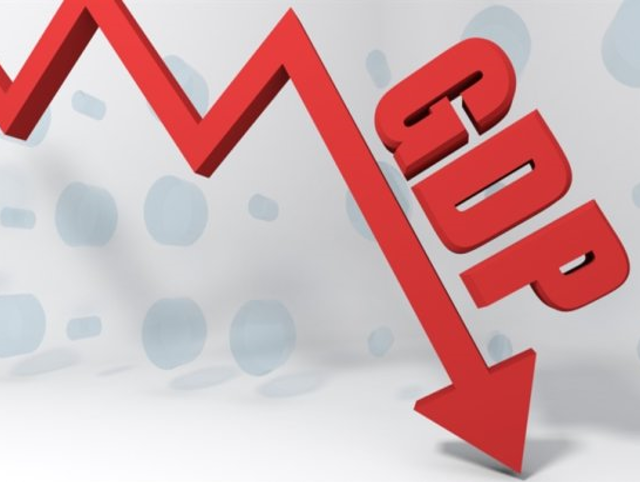
Sri Lanka's economy to contract by 5.5%
Sri Lanka’s economic output will contract by 5.5 percent in 2020 as the country is recovering from the heavy economic toll caused by the pandemic on the livelihoods and businesses, the Asian Development Bank (ADB) said. However, Sri Lanka’s economic growth is expected to pick up to 4.1 percent in 2021 in part due to a low base.
Page 8 of 22